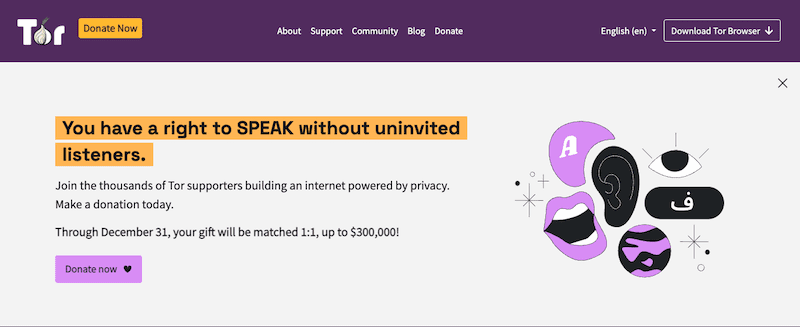
This article goes over how to do a deep web search on someone and also discusses deep web content vs. dark web sites.
While the dark web is often discussed with an air of danger and fear, the deep web is less often mentioned but used much more frequently. While standard search engines aren’t able to fully access deep web pages, they can lead you to the information you’re looking for, like a deep web search engine for conducting a background check on an individual.
Before we discuss how to use a deep web search engine to get in touch with a lost contact or find sensitive information about a person, like their criminal records, it’s important to understand the differences between traditional search engines, deep web search engines, and dark web search engines.
If you need help repairing your online reputation due to results in a standard web browser or a deep web search engine, contact us today at 844-461-3632 for a free consultation.
Deep Web vs. Dark Web
While there’s some crossover in meaning, the deep web and the dark web aren’t the same thing. The dark web is part of the deep web, but information on the deep web is not necessarily part of the dark web.
Deep Web
The deep web includes everything online that meets criteria like the following:
- Paywalled
- Password-protected
- Protected from crawling
A majority of what’s online can’t be found by a traditional search engine. That’s why deep web searches are popular — you’re able to find more than you can with a basic Google search.
Dark Web
Unlike Google and the deep web, the dark web includes a small fraction of all online information. Data on the dark web is encrypted for the utmost security.
You can’t accidentally stumble upon a page from the dark web — you have to specifically seek it out. A dark web search requires an anonymous web browser, like the Tor network, and a VPN to access.
Surface Web vs. Deep and Dark Webs
The surface web is what you’re probably most familiar with. When you perform a Google search, the search results you see are part of the surface web. An item on the surface web can be added to a search engine database with no problem.
Here’s a brief breakdown of the three web types:
- Surface Web: This web is completely public. Everyone has access to content on the surface web.
- Deep Web: This web is private — you can’t find the information with a basic, public search. Your email accounts and messages are part of the deep web, for example.
- Dark Web: This web is secret. It includes content that needs to be purposely hidden from the public. You can only access it via a Tor browser or Onion sites.
To recap, the surface web is public, the deep web is private and the dark web is secret, and basic search engines only return surface web information.
4 Reasons To Do a Deep Web Search on Someone
Performing a deep web search on someone could be helpful if you’re looking for detailed background info on an individual that’s not indexed on regular search engines. That doesn’t mean you need a dark web search engine, though. Instead, using the surface web can lead you to deep web searchable databases.
Here are a few scenarios when knowing how to do a deep web search on someone is used for a legitimate purpose.
If you’re concerned that your private information is being used to cause harm to you or your family, speak with one of our consultants today at 844-461-3632.
1. Background Checks
Employers or hiring managers may use a deep web search to conduct a detailed background check. This can help with verifying an individual’s credentials and work history. Additionally, assessing an individual’s online presence, including public records and court records, can help determine if they’re a good fit for the company.
2. Financial and Legal Reasons
An investigator may use deep web search engines to research a person’s corporate affiliations, financial records or legal proceedings. This can help determine the individual’s risk profile, which is important when it comes to business deals and lending.
3. Finding Loved Ones
The deep web can help families reconnect with loved ones. When the information that’s publicly available isn’t enough, the deep web can find un-indexed data, like education history or old address records. Having any type of personal information can make it easier to track them down for a happy reunion.
4. Genealogical Research
People in an academic or genealogical field may use the deep web for historical research. Sometimes, the only place to find archived databases, private publications and old records is on the deep web.
While there are legitimate reasons for conducting a deep web search on a person, there are also plenty of people who do so with harmful intent.
How To Do a Deep Web Search on Someone
The best way to do a deep web search on someone is to use the surface web to find links to communities and databases on the deep web. While you may not be able to find in-depth information on the surface web, it can point you toward deep web content.
1. Use Google To Find a People Search Database
People search databases gather a lot of information that Google alone won’t be able to show you. Using Google to find people search databases can lead you to tools where you can conduct deep web searches on individuals.
2. Check the Internet Archive


The Internet Archive has all sorts of free content that you can search using metadata, news captions, radio transcripts and more. At the top of the page, you’ll also find the search tool for the Wayback Machine, which may turn up different results from the regular Internet Archive search.
These tools can bring up search results for content that no longer exists on the internet.
3. Search Historical Newspapers


If you’re wondering how to do a deep web search on someone for historical or genealogical purposes, Veridian can be a huge help. Veridian Software has digitized versions of newspapers and publications from across the globe. And much of the content that Veridian has cataloged is only available on the deep web.
4. Use the Tor Network


Tor software can help you access certain parts of the deep and dark webs to find information that people want to remain private. Tor is free, open-source software that allows for anonymous communication. Tor also makes it possible to use deep and dark web browsers that won’t operate otherwise.
While using Tor is legal, some people engage in activities with the help of Tor that are not. Also, browser extensions and mobile versions of Tor are not secure to use.
Also, don’t ever download a file from a Tor webpage. Since many people use anonymous protection to conduct illegal activity, you have to be extra proactive about keeping yourself safe.
How To Safely Access the Deep Web
Since a majority of the internet is the deep web, you access it much more often than you may think. And every time you access a deep-web site, security is a concern.
Here’s how to keep yourself safe when using the deep web:
- Check the URL to ensure that https is at the beginning. This means the website is secure.
- Create strong, unique passwords that are hard for cybercriminals to guess.
- Only access networks that you trust. This is especially important when providing sensitive information like your credit card information or Social Security number.
Businesses should also have all of their employees well-trained in cybersecurity best practices.
Final Thoughts About Deep Web Searches
Knowing how to conduct a deep web search can be helpful when vetting a potential employee, reconnecting with an old friend or ensuring your kids are safe with their babysitter. However, if someone conducts a deep web search on you and finds misleading or negative information, it can damage your online reputation and opportunities in both your personal and professional life.
Speak with an online reputation management expert today by calling us at 844-461-3632 or filling out the contact form below.
Request a Free Consultation















